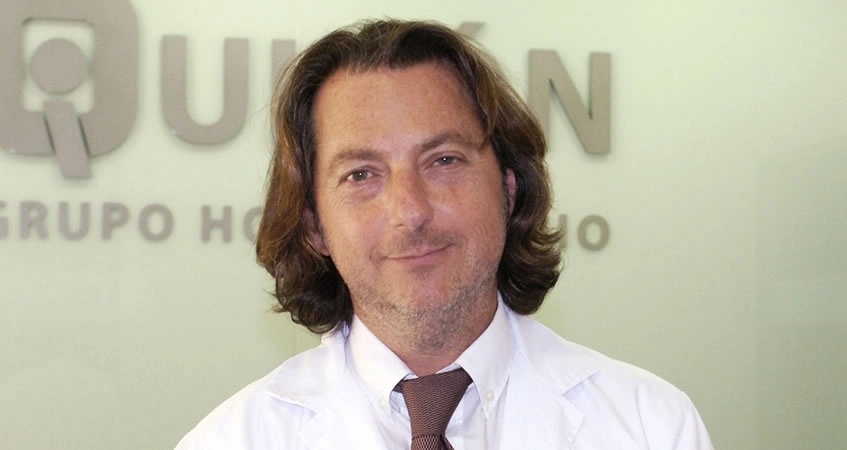The intense attention of Dr. Sala and his team in the postoperative period makes complications unusual. We begin ambulation 6 hours after the procedure, doing breathing exercises to avoid atelectasis and pneumonia, minimizing the risk of infections. After verifying the absence of leaks, we institute a physiological and progressively high protein oral liquid diet to facilitate the healing of the sutures. Availability and contact are continuous and permanent with Dr. Sala and the dietitian during the hospital postoperative period and home convalescence.
The use of cutting-edge surgical material, both in the operating room with the use of specific self-suturing staplers and during the postoperative period with the use of pneumatic antithrombotic stockings, makes the procedure more comfortable and reduces the risks even further.
Advice
The best information is obtained from a long and fluid conversation in the consultation, pointing out doubts for later review.
No patient should undergo a bariatric or metabolic intervention without complete and detailed information, prior medical evaluation studies, knowing and assuming the possible risks (specific informed consent). You should always look for solid and solvent multidisciplinary teams with proven experience, and that ensure adequate long-term follow-up.
The patient is admitted on the same day of the intervention, with antibiotic and thromboembolic prophylaxis. The intervention and postoperative period proceed normally, and the patient is discharged 24 hours after surgery, even on the same day with OUTPATIENT SURGERY in certain cases, with good oral tolerance and dietary information for home care until subsequent check-ups.
With some exceptions, patients recover well from anesthesia and go to their room, without the need for ICU.
All patients are prescribed low molecular weight heparin and gastric protection.

